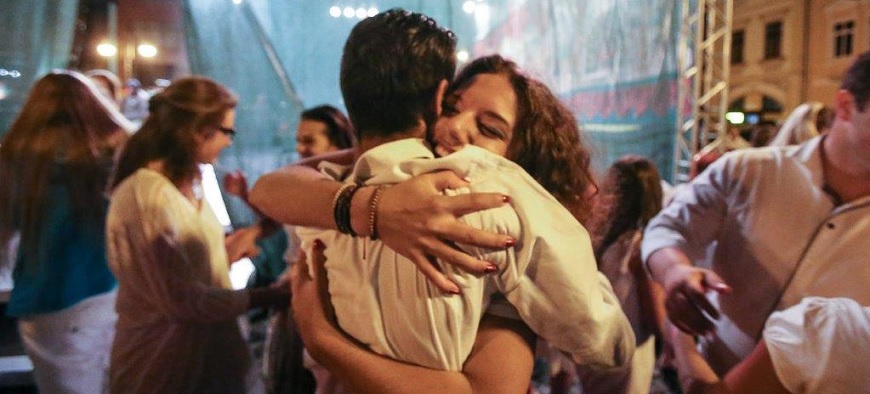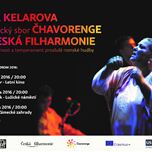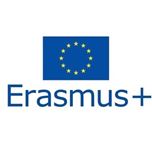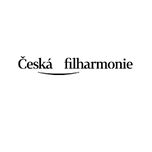Romano drom 2016
The Romano drom summer school culminated with three successful concerts in three towns in the Šluknov region: Sixty Roma children from the Czech Republic and Slovakia spent two inspirational weeks full of music and dance thanks to the team of Ida Kelarová and musicians from the Czech Philharmonic as part of the Romano drom summer school. This year the school took place between July 30 and August 13 in the Šluknov region. The idea was to teach children that talent alone is not enough; it must be developed and nurtured.
Ida Kelarová and her artistic team prepared this year’s summer school with the organizational backing of MIRET, z. s. and the Czech Philharmonic. The Romano drom summer school (in translation the Roma Way) is targeted at talented Roma children aged from 13-19 from socially deprived families in Roma ghettos and settlements from across the Czech Republic and Slovakia. During the two weeks, these children got to know better themselves, their identities, and traditions. Together, they created something that is both powerful and beautiful.
Ida Kelarová thanked the children at the end of the summer school for their committed efforts: ‘I would like to thank our dear children. I would like to thank you for your modesty, for your respect for us all, and for the fact that you understand your responsibility for yourselves, for what your have found within yourselves and brought out during the concerts. I salute you all. We have forged ahead together. It was once again a supreme effort, but that is MIRET. The Roma path (Romano drom) is difficult. It is painful, but also full of joy, love, humility, and life. I strongly believe that everything we have achieved and created will have a long lasting significance.’
The 60 children taking part were chosen during competitions held in March and April across the Czech Republic and Slovakia. Participants converged on Jiřetín pod Jedlovou from the following places: Košice-Šaca, Rankovce, Geľnica, Bardejov-Poštárka, Lenartov, Stará Lubovňa, Veľká Lomnica, Poltár, Lučenec, Liptovský Mikuláš, Žilina, Bratislava, Vsetín, Přerov, Vápenná, Brno, Olomouc, Vysoké Mýto, Chrudim, Luže, Hrochův Týnec, Čankovice, Hradec Králové, Náchod, Praha, Trmice, Jablonec nad Nisou and Varndsdorf.
‘The children have worked very hard themselves and, as is so often the case, must strive twice as hard as Roma children as they would have if they were non-Roma. We teach them that as Roma they can not only be rewarded but also accepted by society. They gain self-confidence, which is a key to their further development. They also serve as motivation for other children. It’s up to us to create role models which children are often lacking. And with the children from the Čhavorenge choir, such role models now exist,’ commented Ida Kelarová.
At the summer school, Ida Kelarová and her artistic team gave children a solid foundation for their further development. The emphasis at the summer school is on a wide and varied educational programme to support their personal and artistic growth.
‘We motivate children so that they understand that in today’s world they have more opportunities than their parents and that they should weigh up and take advantage of these opportunities. We put all our heart into our work because we want to continue this progress for Roma children. Even if we are not able to motivate all the children educationally, we do seek to ensure that they can have a better life than their parents. We hope that they will grow up into self-sufficient adults, have families, and will become good parents. For Roma children to succeed, they must strive hard and continuously,’ commented Ida Kelarová.
Thanks to Ida Kelarová and her unceasing efforts the children’s stay was entirely funded by the non-profit MIRET as with a grant from Erasmus⁺. The US Embassy in Prague also supported the project.
What happened at Romano drom 2016?
The children and young people taking part had the chance to meet with Roma and non-Roma experts from various fields. One aspect of the latest summer school were special workshops focused on Roma history, cultural tradition, and problems of everyday life. One of the successful young Roma taking part was Petr Torák, a Roma policeman living in Great Britain who was honoured for his work by Queen Elizabeth the Second. Roma participants in the summer school summed up their experiences as follows:
‘I would like to thank you for the invitation to take part in this event. It was an unforgettable experience. What you do for these children is great. To hear the children sing and accompany the philharmonic orchestra was really beautiful.’
The choral group headed by Ida Kelarová, the Roma traditional dancing with Oto Bunda and Libuška Bachrata was a new experience for some of the children. From Michal Mižigár they learnt a lot about Roma traditions and history, they also became familiar with Roma culture, their identity and their common roots. On the memorial day for the Roma Holocaust, they took part not just in lectures but also a memorial gathering to pay homage to the victims of the holocaust in the presence of the Jiřetín vicar, Pavel Koudelka.
One of the participants in that evening’s events, Boženka Balážová, wrote: ‘It was a lecture about the Roma around 80 years ago. Miža explained how difficult it was and what happened to them. It affected me deeply. I remember how a few years ago we performed at a concert at Hodonín. I had the impression that I was back there again when Oto started to sing the song Aušvicate. Many thoughts went through my mind and I was not able to stop myself from crying. I tried to imagine myself undergoing the same experiences but could not conceive what I would do if they took away my family and I was left watching how they suffered, wept, and cried for help. And everyone would just look on because they were powerless to do anything else.’
An important part of the programme was the game Treasure Hunt. During the difficult tasks set out in the game, the children started to overcome their timidity and act as part of a wider team, as one mind and body. Júlia from Bratislava wrote about one of the most memorable moments for her during the game:
‘We continued on until we got to the unlucky eighth stage. To complete the stage we had to write a letter outlining our fears in life. We did not have paper or pens. Therefore we went on a demanding hunt for them so that we could continue with this unexpected task with a clear conscience. After a fruitless search, we came up with a plan B. We all sat round in a ring on the ground and each recounted what their fears were. For me it was the most beautiful moment of the treasure hunt. We quietly sat down and humbly recounted one after the other. Then we tore up the cover of the previous tasks into 60 pieces and wrote in clay or ash one word which represented our biggest fear. We made a mound of stones and buried the pieces of paper under it and in this way fulfilled all the tasks we were given.’
Other learning experiences were also prepared for the participants of the summer school. English lessons were given by the experienced teacher and American singer living in Slovakia, Jody Winchester. Thanks to Martin Fogo Halász, the founder of the Bratislava Academia Universum, children were able to become familiar with Capoeira. Another part of the programme covered theatre workshops with Anna Petrželková and Tomáš David and a engaging educative games led by Dana Pokorný and Júlia Šimek. Yoga hours were conducted by Hanka Koníčková, breathing exercises with Ida Kelarová, discovery of the night sky with Josef Kvasničák. Also offered were media workshops, nature discovery, and legal literacy workshops. Children were able to widen their knowledge and capabilities in these and other areas.
Concerts at Nový Bor, Rumburk and Děčín
The Czech Philharmonic has been involved in an exceptional and significant project with its musicians accompanying children from the Čhavorenge choir in concerts and taking part in entertaining musical workshops. It’s the third year running that the Czech Philharmonic has been involved in the project. Czech Philharmonic member Jitka Kokšová wrote about the summer school and the cooperation with Roma children and Ida Kelarová:
‘Romano drom – the Roma path. For me it’s been an eventful and unforgettable path. I took part in this event for the second time. Spiritually, it left me with some beautiful and some less enjoyable feelings. The children were well prepared after a week’s training and me and my colleagues were in some ways just the cherry on the cake. Practices took place every day and there were also lectures from successful Roma - which was by the way very interesting – concerts full of energy and trips with the children, all of which was very fulfilling. I am pleased that I could take part in teaching and putting talented children on the right path to the chance for a better life.’
A major part of the concert programme was contemporary Roma creations, beautiful songs which were composed by Desiderius Dužda, one of the outstanding current Roma composers, and arranged by Martin Hybler.
Ida Kelarová commented the following on the participation of the Czech Philharmonic:
‘The cooperation with the Czech Philharmonic is a great plus which we appreciate greatly. It helps us to open up the horizons for our children. But we also feel responsible for helping the children face life with all its tests and challenges.’
The concerts were exceptional events, also thanks to the involvement of the non-Roma choir led by Kateřina Müllerová. Roma and non-Roma practiced together for several days. The non-Roma choir joined in with Čhavorenge during the concert and everyone joined in for several songs, including a beautiful Roma Czardas. One of the participants, Teresa Pípová, described her experiences from her Romano drom as follows:
‘Romano drom really get me a lot in life. Everyone, whether they admit it or not, has prejudices until they get to know how a person really is. I also had prejudices. I put the Roma all into one bag. I did not understand that not all Roma are not bad. I was afraid when I signed up for the event. But with the first practice I realised that I had done the right thing and that I would miss it dreadfully once it was over. That is how it was in fact. I am really pleased that I have been able to keep in touch with a couple of people from Chavorenge.’
The concerts took place at three towns in the Šluknov district. They were in Nové Bor on August 9, in Rumburk on August 10, and in the castle grounds at Děčín on August 11. Taking part in the concert, as well as Ida Kelarová and her artistic team, were the Čhavorenge choir, members of the Czech Philharmonic, local non-Roma children, and talented Roma artists.
Jana Svačinková, whose daughter took part with the non-Roma choir, wrote: ‘We went to have a look at the concert at Děčín. It was terrific and we were taken away by the energy. Putting Roma and non-Roma together was a great idea: you need to break down barriers, even more so now in northern Bohemia during current times. We were glad that our daughter could take part in this project.’
Roma and non-Roma mixed in the public and on the stage. That meant there were chances for friendly encounters between both sides, which could only contribute to destroying prejudices and reducing racism and xenophobia in such specific localities where relations between Roma and non-Roma are often extremely tense.
Ida Kelarová explained: ‘We strive for the children that are members of the Čhavorenge Choir to be role models for other young Roma so that they can together change this world. Every step in this direction is a contribution to transforming difficult and challenging life situations and an environment of discrimination. Everyone who can from the bottom of their hearts accompany us in this venture will themselves discover something greater within themselves.’
Was created during the Romano drom 2016 activities (in Czech language):




